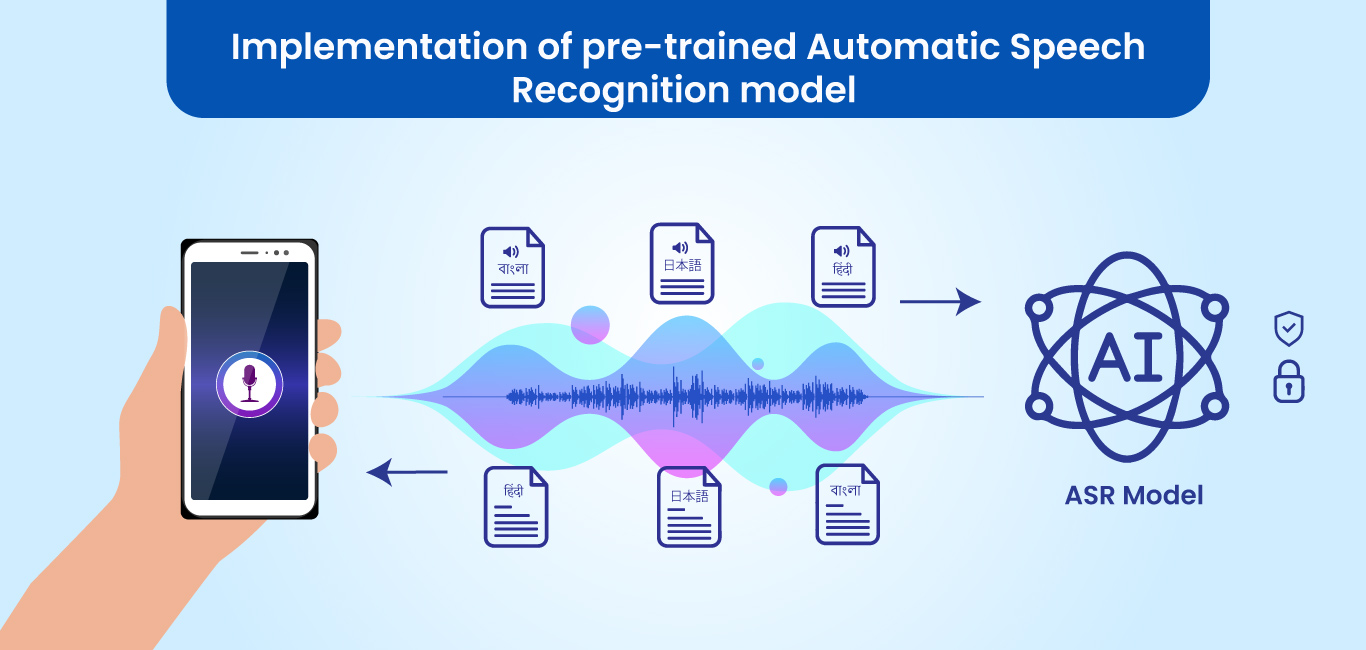
Implementation of pre-trained Automatic Speech Recognition model – Case Study
About Client:
The client is a Leading Telecommunications Company with over 10 million customers worldwide. The company offers a wide range of communications services, including mobile, fixed-line, and broadband internet.
Requirement:
The client wants to enhance speech privacy and security through advanced speech recognition technology in multiple languages to ensure that customer data is protected when they use speech-to-text features.
Project details:
Service: Software Development
Source language: English
Tools and technology used: HTML, CSS, JavaScript for frontend development and Python in backend development.
Challenges:
Client faced several challenges in their existing speech recognition system, including:
- The existing system lacked robust privacy measures, which raised concerns about the security and confidentiality of customer’s conversations.
- The client sought to ensure the protection of customer data by avoiding the storage of sensitive voice recordings in the cloud or third-party servers.
- Despite privacy concerns, maintaining high-quality voice recognition capabilities was crucial to provide excellent user experience and meet customer expectations.
Solution:
Fidel turned to a pre-trained model for Automatic speech recognition model, an innovative open-source speech recognition system to address these challenges. The model offered a unique solution that addressed their privacy and security concerns while maintaining high accuracy. The implementation process involved the following steps:
- The client collected a large amount of voice data from their customers, ensuring that the data was diverse across languages, accents, and speech patterns. This data was used to train the speech recognition model.
- The model neural network architecture enabled the model to learn the patterns and nuances of speech while preserving privacy. The neural network architecture of our model was leveraged to learn complex language patterns and improve accuracy.
- The model incorporated advanced privacy-preserving techniques, such as differential privacy, which ensured that individual voice data remained anonymized and protected against privacy breaches.
- This trained model was deployed on the client’s devices, enabling speech recognition to be performed locally without relying on cloud-based servers. This approach significantly reduced the risk of data exposure and improved data security.
- Our model was continuously updated and refined by incorporating new data and adopting advanced techniques.
Result:
Client successfully transformed their language service provision, achieving remarkable outcomes in accuracy, efficiency, and scalability. By embracing the advanced Automatic speech recognition capabilities, they overcame challenges related to accuracy, multilingual support, and scalability, positioning them as a leading player in the language service industry.
